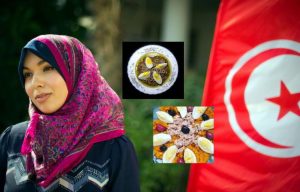A complex history has shaped relations between Muslims and Christians in Indonesia. While challenges remain, there are opportunities to strengthen ties through interfaith dialogue and cooperation. Pope Francis’ visit to Indonesia has had a positive impact, reinforcing the message of peace and unity and encouraging efforts to build stronger relationships.
Indonesia, the world’s largest Muslim-majority country, is home to a rich mosaic of religious diversity, with Christianity being the second-largest religion. According to the 2020 census, about 87% of Indonesians identify as Muslim, while Christians – Protestants and Catholics – make up about 10% of the population. Relations between Muslims and Christians have shaped the country’s history, politics and society. They have been characterised by cooperation and conflict, unity and division, peace and tension.
However, this complex relationship presents significant challenges and opportunities as Indonesia strives to preserve national unity while encouraging religious harmony. With the recent visit of Pope Francis, a new chapter in this relationship is emerging, which could reshape the religious landscape and pave the way for deeper collaboration to build a more inclusive and peaceful Indonesia.
One of the key challenges for Muslim-Christian relations in Indonesia is religious tension, which has sometimes led to conflict. Cases of interfaith violence, particularly in the early 2000s in areas such as Maluku and Central Sulawesi, have left scars on both communities. These conflicts were motivated by a combination of religious, economic and political factors. The resurgence of religious conservatism and intolerance in some parts of Indonesia has at times strained relations between the two groups.
Indonesia’s blasphemy laws have also been controversial, as they are sometimes seen as disproportionately affecting religious minorities, including Christians. The case of former Jakarta governor Basuki Tjahaja Purnama (Ahok), a Christian, highlighted concerns about the politicisation of religion and its impact on religious relations. Ahok’s imprisonment for blasphemy in 2017 highlighted the sensitivity of religious discourse in Indonesia and revealed underlying divisions.
Although the Indonesian constitution guarantees religious freedom, there are still clear challenges; for example, Christians face difficulties in obtaining permits to build churches, particularly in Muslim-majority areas. These challenges are not unique to Christians; other minority religious groups also face similar problems. However, these incidents sometimes contribute to a sense of alienation and inequality, hindering efforts to build a more harmonious society.
Despite the challenges, considerable efforts have been made to bridge the gap between Muslim and Christian communities. Interfaith dialogue, promoted by religious organizations and civil society, has played a key role in promoting mutual understanding. Forums such as the National Interfaith Council and Initiatives led by religious leaders have contributed to peacebuilding efforts and encouraged religious tolerance.
Joint efforts in social justice and humanitarian action are another avenue for collaboration between Muslims and Christians in Indonesia. Both faith groups have a long tradition of community service, and working together on issues such as poverty alleviation, disaster relief, and education has fostered a sense of unity. Emphasizing shared values of compassion, charity, and social justice paves the way for closer collaboration.
Pope Francis’s visit to Indonesia in September 2024 marked a historic moment in Muslim-Christian relations in the country. As a global religious leader who advocates for peace, dialogue, and inclusion, his presence and message resonated with Indonesia’s Christian and Muslim communities.
During his visit, Pope Francis emphasized the importance of interfaith dialogue and the need for religious communities to work together for the common good. His call for mutual respect and cooperation touched the hearts of many Indonesians.
The Pope’s visit also gave impetus to grassroots movements for reconciliation between religious communities. Religious organisations and local leaders used the visit to launch initiatives for tolerance and understanding. The Pope’s message of peace and unity resonated with many Indonesians who want a future where religious differences are celebrated rather than feared.
Younger generations in Indonesia are playing an increasingly important role in shaping the future of interfaith relations. Born in the midst of the digital boom, they are more open to global perspectives on tolerance and religious diversity. Social media and online platforms offer young people from different religious backgrounds the opportunity to engage in dialogue and work together on common causes. The challenge will be to ensure that these platforms are used to build bridges rather than exacerbate divisions.
The future of Muslim-Christian relations in Indonesia will depend on the ability of both communities to build on the shared values of compassion, justice and service to humanity. By focusing on what unites rather than what divides them, Indonesian Muslims and Christians can continue to work together to build a more peaceful and harmonious future. (Ferdinand Rondong/Ad Extra) – (Photo: Reading of the Istiqlal Joint Declaration in the presence of Pope Francis and the Grand Imam of the Istiqlal Mosque, Nasaruddin Umar. Kari)






